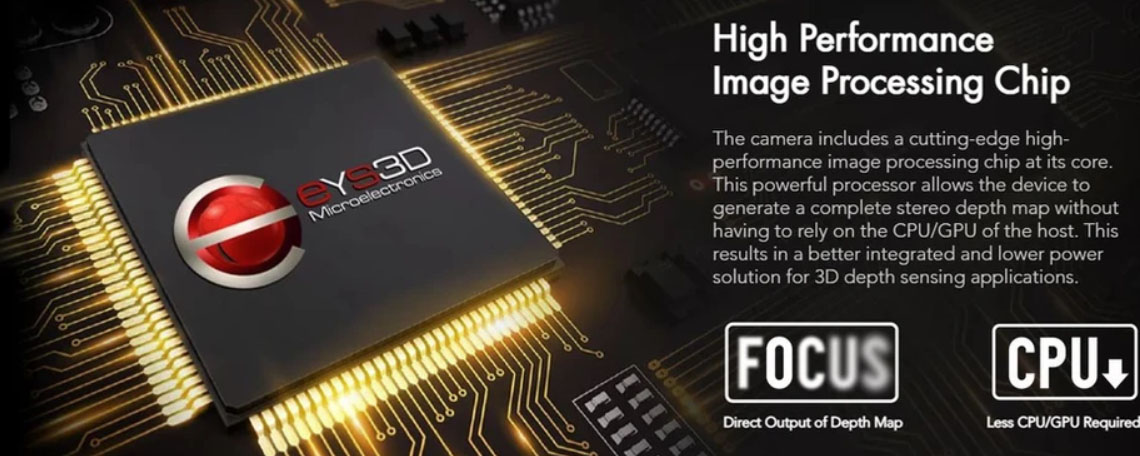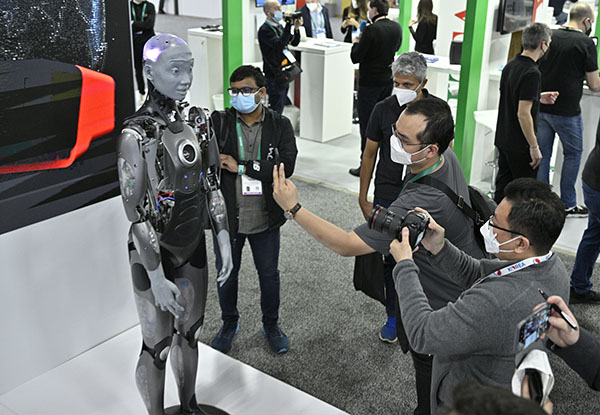Among the trends at this year's CES in Las Vegas are advances in perception for robots and autonomous vehicles. eYs3D Microelectronics Co. this week launched the XINK computer vision development platform for applications such as indoor cleaning robots, agricultural robots, and smart cities.
The global market for autonomous mobile robots (AMRs) could reach $10.66 billion by 2030 at a compound annual growth rate (CAGR) of 16.8% from 2022, according to Grand View Research Inc. The expansion in demand for materials handling is partly responsible, it said.
“New technologies have enabled surging market growth for mobile robotics,” said James Wang, chief strategy officer of eYs3D. “Mobile autonomy must be accompanied by advances in computer vision to enable new areas of robotic deployment, including accurate picking and packing; moving, sorting, and efficiently storing items; autonomous navigation; and other markets.”
“Our XINK platform will allow rapid, one-stop development of vision capabilities for these applications, and we expect to host a community of developers who will both provide and benefit from contributed building blocks,” he added.
XINK designed to help perception developers
XINK is both a platform as a service (PaaS) as well as a hardware and software development kit, said eYs3D Microelectronics. It is a “cost-effective solution for design of safe, vision-capable mobile AI products equipped with field analysis, object recognition, obstacle detection, object tracking and following, and route-planning functions,” the company claimed.
The modular platform provides high-performance compute power, an AI accelerator, I/O controls and Flexi-bus communication peripherals, smart power management, and machine vision subsystems. XINK can take care of low-level programming, freeing developers to use cut-and-paste coding for application-specific design while reducing design cycles for quicker commercialization, said eYs3D.
XINK also has imaging signal processing (ISP) support features. The system opens to integrate internal ISP, as well as external ISP products such as eYs3D's eSP87x-series stereo video and depth processor.
The eYs3D stereo camera can be connected to the XINK platform via USB to capture video and depth stream for 3D data creation and for AI and machine learning analysis. eYs3D said its new eCV1 chip handles edge AI processing.
An additional low-power ARM Cortex M4 processor can be used as an MCU, noted eYs3D. The platform supports various AI inference tools including TensorFlow, TensorFlow Lite, PyTorch, Caffe, TVM, and more, it said.

Potential platform benefits
XINK offers the following benefits, according to eYs3D Microelectronics:
- Industry 4.0 application readiness via high-speed communications and conformance to IEEE 1588 standards
- Power management, including with sleep and deep-sleep modes for unused blocks, supporting always-on capability
- eCV1 computing performance through the quad-core Cortex A55 64-bit CPU and the 4.6 TOPS (trillion operations per second) neural processor unit (NPU) in the eCV1 chip, which provides dedicated machine learning instructions, a patented neural network engine, and Tensor Processing Fabric
- Flexible image and computer vision processing for domain-specific applications
The new platform also supplies developers with H.264 compression for easy video streaming, said the company. XINK's Crypto Engine includes ARM's TrustZone for security, as well as a pseudo-random number generator and other encryption to protect user data through hardware-based isolation.
eYs3D exhibits at CES 2023
eYs3D Microelectronics demonstrated the XINK development framework at CES Booth 15769 in the Central Hall of the Las Vegas Convention Center and at Booth 62500, AT1, Hall G, Eureka Park in the Venetian.
“New technologies have enabled surging market growth for artificial intelligence, and semiconductors play the core role,” said Dr Nicky Lu, founder, chairman, and CEO, and founder of Etron Technology Inc., parent company of eYs3D. “In addition to establishing an AI ecosystem and developing key technologies, we are proud of launching XINK today.”
“These intelligent product chipsets and microsystem have strong supports from close collaborations from our Foundry and OSAT [outsourced semiconductor assembly and test] partners, AI-on-Chip Taiwan Alliance, the Department of Industrial Technology, and the Ministry of Economic Affairs,” Lu said. “Their unceasing efforts to establish an excellent industrial environment aimed at facilitating ongoing innovation and a concrete ecosystem for AI.”
eYs3D Microelectronics develops semiconductor technologies and products related to 3D computer vision. The Taipei, Taiwan-based company works with Eltron Technology and ARM Holdings PLC and targets markets including industrial automation, the Internet of Things (IoT), and smart products.
Etron Technology is fabless and heterogeneous integration integrated circuit (IC) design company that specializes in application-driven buffer memory, known-good die memory (KGDM), long-retention time DRAM (RPC DRAM), and other DRAM products for AI and machine learning. The company also develops system-in-packages, including of USB Type C high-speed transfer interface chips and 3D depth-sensing computer vision and panoramic image capturing chips.
Article topics
Email Sign Up
















